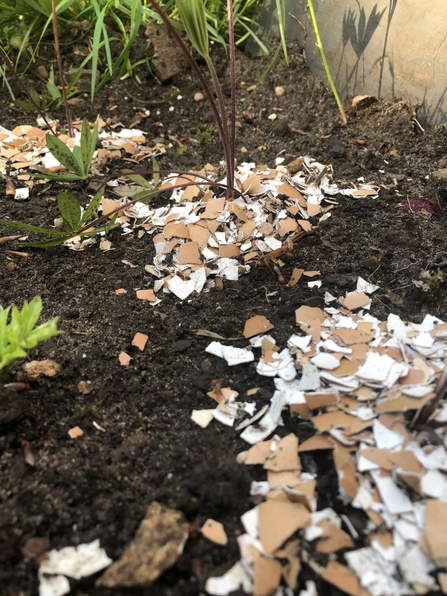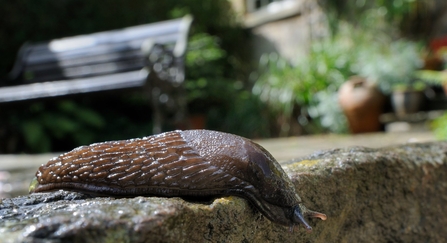Hedgehogs are generalist feeders meaning that they have a varied diet with the main items on a hedgehog’s menu being invertebrates including slugs, caterpillars, earwigs, beetles, worms and millipedes. If you are ever lucky enough to find hedgehog poo, you might be able to notice the shiny wing cases of the beetles they feed on in their droppings! They can also occasionally eat carrion, frogs, eggs, fruit and baby birds.
Hedgehog Awareness Week, Day 3 - Stop the use of harmful chemicals

Hedgehog poo
Hedgehogs have many different hazards to contend with, including encountering chemicals in our gardens and green spaces. The use of chemicals present in weed killers, slug pellets and pesticide sprays can all have detrimental effects on hedgehogs, as killing the invertebrate species on which they feed can deplete food sources and they can cause a build-up of harmful toxins in their systems if eaten.
Luckily, there are alternatives that can be made, opting to go organic instead, making our gardens safer for hedgehogs. Some of these alternatives are weird and wonderful and include broken egg shells, coffee grounds and bark chippings, which act as a deterrent to slugs due to the rough textures making it hard for slugs to move across the surface, copper tape which emits a slight electric shock to those that try to slime across the surface and also garlic water sprays which works due to the Allicin content in garlic that acts as a natural deterrent to both slugs and aphids, too!
Last week, our Ipswich Learning Officer tried the use of crushed egg shells on the garden and is happy to report that so far, the damage by slugs has been much reduced!

Eggshells on flowerbed
Another way that you can reduce the amount slugs in your garden is by grabbing a torch and going out on a late night slug hunt, hand picking them and transferring them to an alternative location. This can be a fun activity and perhaps you can have a go at identifying the 40 different types of slugs we have here in the UK! If you would like a helping hand finding slugs, cutting oranges and placing them in your flower beds will attract slugs, meaning you just have to remember where you placed the oranges!

Great black slug (Arion ater) brown form, crawling over patio after rain, with house and garden bench in the background, Wiltshire, UK, July. - Nick Upton/2020VISION

